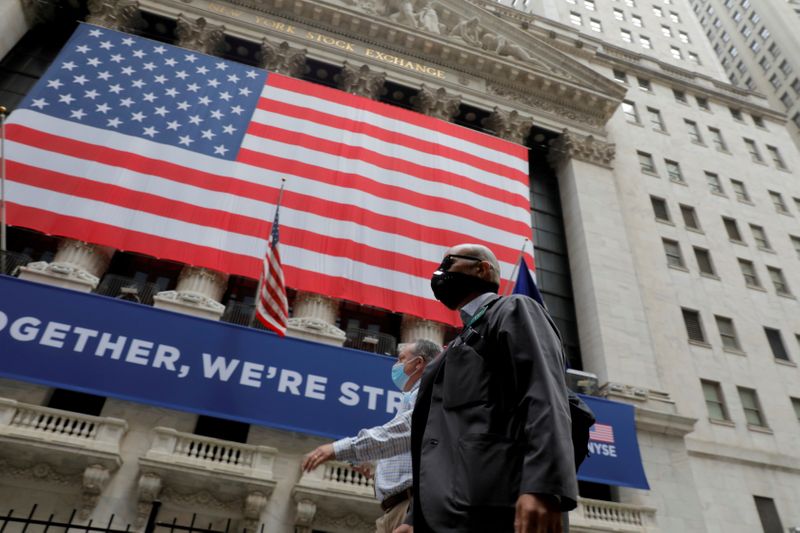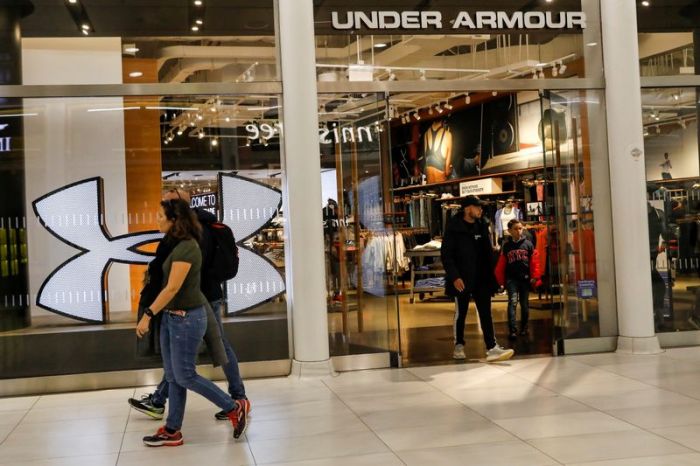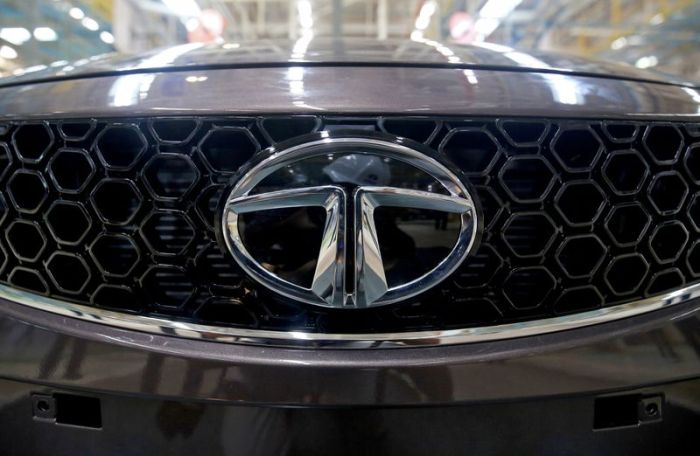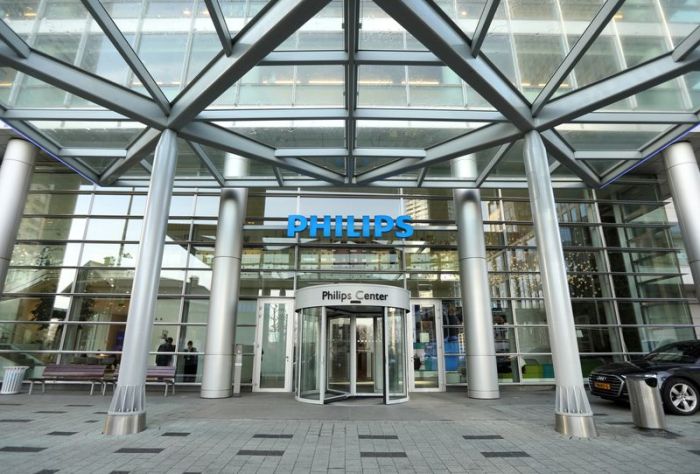BOSTON/NEW YORK (Reuters) – Strong earnings from U.S. technology firms drove Wall Street higher but shares in Europe slid on Friday on doubts about the economic recovery from the coronavirus pandemic, while the dollar rose but still posted its worst month in a decade.
Oil prices gained, benefiting from news that U.S. output cuts in May were the largest on record, while gold hovered near its all-time peak, helped by dollar weakness and dire economic numbers from far and wide that sparked a rush to safety.
The dollar has been weakening amid expectations the U.S. Federal Reserve will be forced to maintain its ultra-loose monetary policy for years, a policy seen as debasing the currency.
Energy stocks fell sharply after Chevron Corp <CVX.N> reported an $8.3 billion loss on asset writedowns and ExxonMobil Corp <XOM.N> recorded a second consecutive quarterly loss.
Apple Inc <AAPL.O> shares surged to a record closing high of $425, a gain of 10.5% on the day, after blowout quarterly results on Thursday and a four-for-one stock split announcement. The surge led the iPhone maker to overtake Saudi Aramco as the world’s most valuable publicly listed company.
Gains by Amazon.com <AMZN.O> and Facebook Inc <FB.O> also helped lift Wall Street indices out of early losses following impressive quarterly results.
“The rally at the end of the day was built on this insatiable demand for these growth companies that have been reporting earnings off the charts. It’s fear of being left behind,” said Tim Ghriskey, chief investment strategist at Inverness Counsel in New York.
MSCI’s world equity index <.MIWD00000PUS>, which tracks shares in 49 nations, was unchanged at 551.89, weighed down by European stocks, which posted their first monthly decline since a market sell-off in March on growing recovery doubts.
On Wall Street, the Dow Jones Industrial Average <.DJI> rose 114.67 points, or 0.44%, to end at 26,428.32, the S&P 500 <.SPX> gained 24.9 points, or 0.77%, to 3,271.12 and the Nasdaq Composite <.IXIC> added 157.46 points, or 1.49%, to 10,745.28.
The dollar index <.DXY>, which tracks the greenback versus a basket of six currencies, rose 0.446 point, or 0.48 percent, to 93.467.
The euro reached its highest in more than two years, and posted its best month since September 2010, raising concerns that its relative strength could crimp European exporters.
U.S. government negotiations over another coronavirus relief bill were not yet on a path toward a deal, U.S. House of Representatives Speaker Nancy Pelosi said on Friday. She spoke just before the expiration of a federal unemployment benefit that has been an essential lifeline for millions of Americans.
U.S. benchmark 10-year Treasury notes <US10YT=RR> slid 0.8 basis point to yield 0.5331%.
Global funds recommended cutting equity holdings in July to the lowest in four years and suggested keeping bond allocations unchanged from June, a Reuters poll showed.
The pan-European STOXX 600 index <.STOXX> gave up early gains to close down 0.9%, pressured by a weak open on Wall Street.
The euro zone’s economy recorded its deepest contraction on record in the second quarter, preliminary estimates showed on Friday, while the bloc’s inflation unexpectedly ticked up in July.
Those figures overshadowed positive manufacturing data from China and Japan.
MSCI’s broadest index of Asian shares outside Japan <.MIAPJ0000PUS> fell 0.3%. Japan’s Nikkei <.N225> dropped 2.82% as a stronger yen weighed on exporters.
China’s blue-chip CSI300 index <.CSI300> closed up 0.84%, its biggest monthly gain since February 2019, rising 12.8%.
Crude oil recovered from an overnight slump. U.S. crude futures <CLc1> rose 35 cents to settle at $40.27 a barrel, while Brent futures <LCOc1> settled up 37 cents at $43.31 a barrel.
Gold rose, with prices up 10% for the month. Spot gold <XAU=> added 0.7% to $1,972.83 an ounce. U.S. gold futures <GCc1> gained 1.54% to $1,972.30 an ounce, just short of record highs set earlier in the week as bullion marched toward the $2,000 milestone. [GOL/]
Silver <XAG=> climbed 3.2% to $24.3 per ounce, its largest monthly gain on records going back to 1982, supported by investment and industrial demand.
(Reporting by Lawrence Delevingne in Boston and Ritvik Carvalho in London; Editing by Dan Grebler and Herb Lash)

























